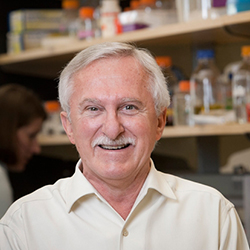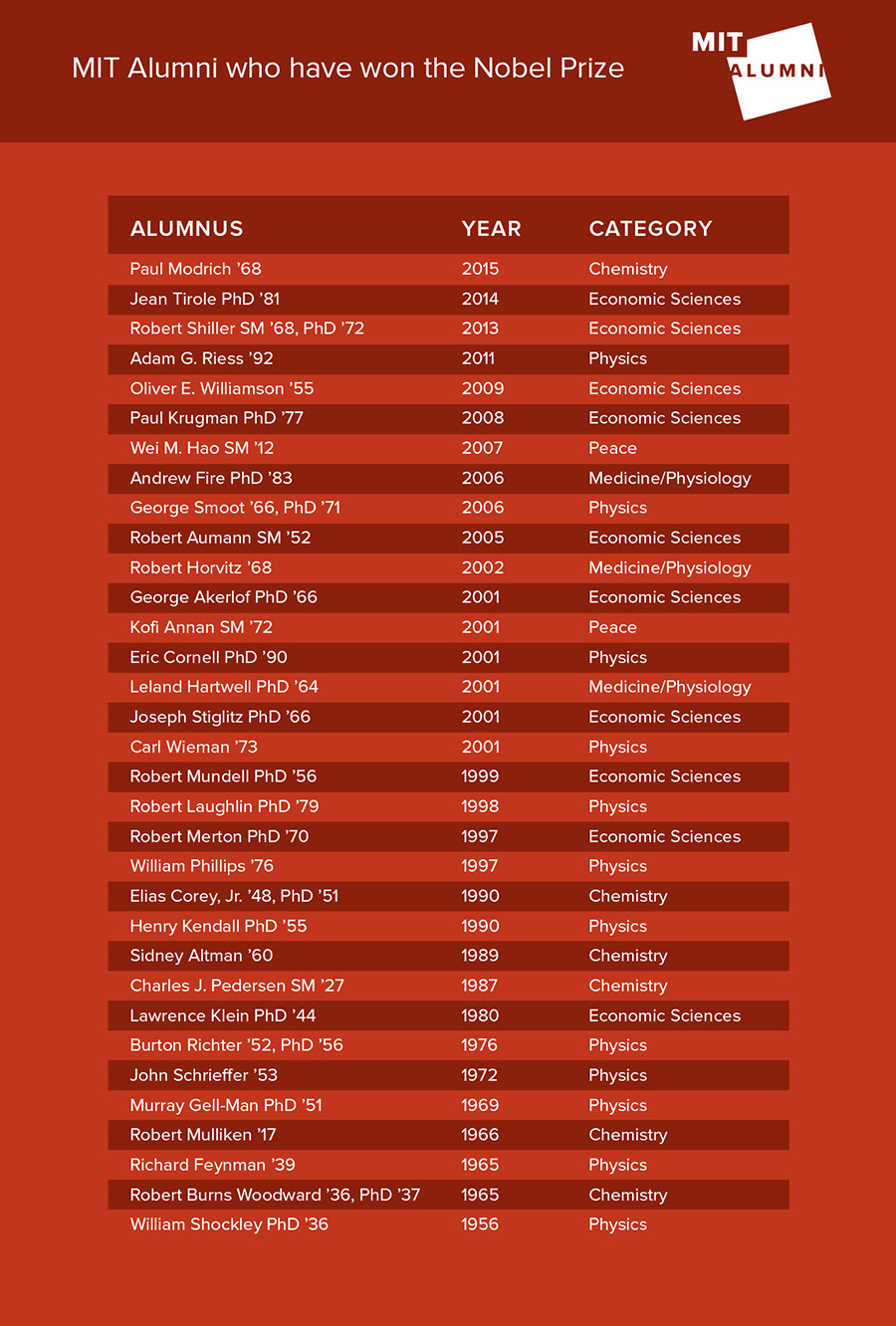MIT Alumnus Paul Modrich ’68 Wins Nobel Prize
-
-
slice.mit.edu
- 1
Filed Under
Recommended

Paul Modrich ’68, a Duke University professor whose research on damaged DNA has led to the development of new cancer drugs, has been awarded the 2015 Nobel Prize in Chemistry.
Modrich, who is also an investigator with the Howard Hughes Medical Institute, is the 33rd MIT alumnus to be named a Nobel laureate and the ninth in the past 10 years. In 2014, Jean Tirole PhD ’81, a former MIT faculty member, was awarded the 2014 Nobel Prize in economic sciences for his research on market power, regulation, and oligopolies.
Modrich is the James B. Duke Professor of Biochemistry at Duke University School of Medicine and a member of the Duke Cancer Center. He shares the award with Tomas Lindahl of UK’s Francis Crick Institute and Aziz Sancar of the University of North Carolina at Chapel Hill; the trio’s work mapped how cells can repair damaged DNA.
Alumnus Paul Modrich wins Nobel Prize in chemistry,” MIT News:
Modrich earned his one-third share of the prize for his work on a system known as ‘mismatch repair,’ which corrects errors that occur when DNA is copied during cell division…Modrich identified the 11 proteins that are responsible for this type of repair in the bacterium E. coli, and he later showed that humans have a similar system that consists of four proteins. Defects in any of the genes that code for these proteins can lead to cancer.
Modrich is the sixth MIT alumnus to receive award for his work in Chemistry but the first since 1990, when Elias Corey, Jr. ’48, PhD ’51 won the Chemistry prize for his for work on organic synthesis. Overall, Modrich is the 85th MIT-connect Nobel winner.
View the full list of Nobel Prize-winning MIT alumni, descending by award year, below then visit the Office of the Provost’s website for all MIT-connected Nobel laureates.




Comments
Mark Camenzind
Mon, 10/19/2015 5:12pm
Congratulations for help make this a healthier world population.
Great progress is being made on DNA, Genome, Epigenetics, cures for some Hepatitis, treatments for AIDS, Ebola etc. Congratulations on your Nobel Prize.
One of the last great chronic diseases that has very little understanding is M.E., Myalgic Encephalomyelitis & CFS, Chronic Fatigue Syndrome, that is more vague), a severe neuroimmune disease affecting up to 2.5 million in US and approx 20 million worldwide (Reference IoM Feb 10, 2015). If Paul Modrich or other chemists, biochemist want to help 20 million to help cure M.E., this is a great challenge that perhaps could yield a future nobel prize. Hope some people might join other Nobel Prize winners including Paul Berg PhD, Molecular Genetics at Stanford, Mario Capecchi PhD U Utah (Genetics and Immunology), James Watson, Molecular Genetics (Human Genome project, and structure of DNA) and other world class researchers (Ron Davis, Genetics Stanford), Mark Davis, Immunology Stanford), researchers worldwide, to cure one of the last great puzzles in disease. See Open Medicine Foundation at
End-MECFS.org
for details. Due to gross neglect and discrimination by the Federal govt and NIH against M.E., this topic gets 500X less funding per patient vs other diseases that are not as debilitating, such as HIV/AIDS which is less debilitating and affects fewer people. Due to Federal neglect ($5M spent per year by NIH vs $2500M for HIV/AIDS), donations from individuals, philanthropists, corporations are needed. Donations will be matched through Dec 1 to leverage toward a cure for M.E./CFS, 20 million people, who need you help. Mark Camenzind PhD, chemist MIT V, 1978.
To get one perspective from Prof Ron Davis who has son severely affected, see:
http://www.bbc.co.uk/programmes/p035n9g6
or thousands of other cases.
See for example others with ME/CFS/FM:
https://www.facebook.com/groups/CFS.selfhelp/permalink/864230653674351/
This is not easy research, but that is the nature of R&D and Nobel prizes